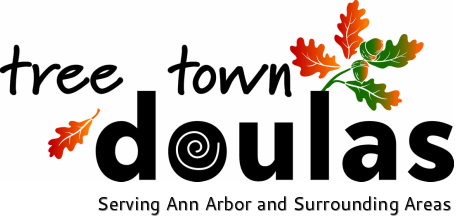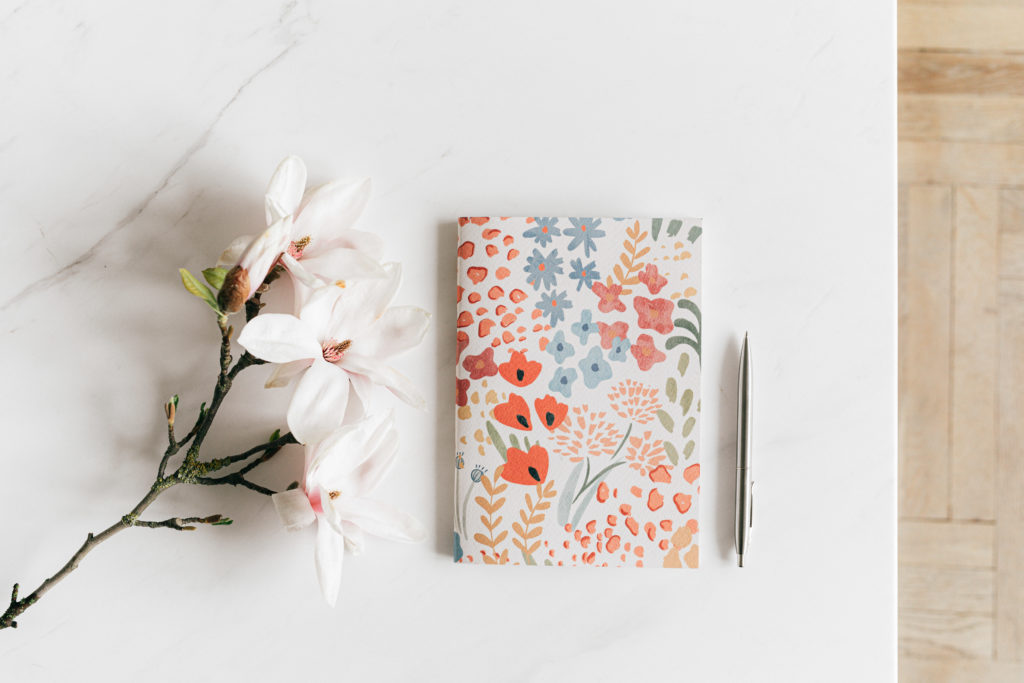A TRAUMA SURVIVOR’S GUIDE TO THE PANDEMIC
By Anna Kreiner
The last few months have been hard on all of us. Not not only on a personal level, but on a global scale. At first it was hard to separate sci-fi apocolypse movies from reality because everything seemed so panicked and surreal. The world was on fire. But over time the pandemic has morphed into a beast that is both similar and enormously different from what it was a few months ago. We have the same problems: number of COVID19 cases, deaths, fear, quarantine, racial disparities in healthcare, companies going bankrupt, lack of access to testing, essential workers putting their lives on the line, and us doing everything we can to protect ourselves and our loved ones. Except now, even though we know more about the virus, we have all of these same problems plus the added bonus of public denial, political gas-lighting, and the fear that so many of us have about schools opening this fall. It’s a lot. It’s overwhelming. And it’s exhausting. Especially because we need to continue to stay vigilant as case numbers increase again.
In healthcare, our doula work, and our personal lives we’re starting to see the long term mental health effects that this constant “survival mode” has had on our minds and bodies. Our bodies are not built to withstand this long-term anxiety and such an intense fear for our own survival for so many months on end. There’s a reason that anxiety disorders and long-term trauma wreak havoc on the mind and body. Fight or flight by nature is intended to get us out of immediate dangerous situations and carry us to safety on a last-ditch burst of energy. Not to sit in it for months on end. That being said, there’s a lot to process, a lot to feel, so much to grieve, and a lot to work through just from existing in the world right now. And even more so when you add in managing work, homeschooling, figuring out where your next paycheck is coming from, taking care of the kids, and for some, bringing a new baby into the world.
We are unfortunately experiencing a collective trauma that will likely continue for more months to come. I entered into the pandemic already as a survivor of trauma from an awful event I experienced in my late teens. Clinically, the 6 -year war I fought with my own mind was diagnosed as PTSD, but I personally just called it “hell.” I am grateful to have since recovered and have healed through many ugly years of demolishing and rebuilding myself. Now, thankfully, that specific event is no longer the main thing I see when I look at myself in the mirror, but rather just a formative part of my past. In many ways my previous experiences with fighting for my own survival have helped me throughout this pandemic. I already had a tool kit packed for if I ever needed to operate out of constant survival mode again. Don’t get me wrong, even as a seasoned vet I’ve still been struggling to navigate all of this. But there are a lot of small, very tangible things we can all do to make this whole experience a little bit easier on ourselves.
So whether you entered the pandemic as a trauma survivor or with perfect mental health, these are my tried and true methods for making this period of constant uncertainty and fear just the slightest bit easier to get through. If you can do them all in one day, cool. But if you can’t, that’s totally fine too. I personally aim to do at least one per day.
So let’s get started…
A little tidbit I have learned throughout my healing process: Trauma has a posse. And it’s not a great posse. And while not everyone will have a full blown PTSD trauma response to everything that’s going on with the pandemic, I’ve definitely noticed the majority of the people in my life (even those who haven’t struggled with mental illness in the past) being visited by one or more members of this unfortunate group:
- The suffocating vice grip of panic
- The stale fog of insomnia
- The slimy voice of self doubt/self-invalidation
- The heavy tendrils of lethargy/depression
- The cracked wasteland of numbness/denial (dissociation)
- The non-stop hamster wheel of hyper-vigilance (constant anxiety)
- The hellish rage to fight this thing (fight)
- The quick-footed sprint to flee somewhere else, somewhere safe (flight)
These reactions are all normal under these circumstances. It is our brains trying to protect us. And this is your reminder that you will get through this. You HAVE gotten through this, and you will continue to do so because this will not last forever. And simply recognizing which member of this posse is visiting you on any given day can help identify the things that might help to alleviate their ickiness.
17 things that can help make the pandemic even slightly better:
1. Establish a routine. Some people are naturally spontaneous. But when it comes to crisis situations and issues of mental health, our minds and bodies do much better with a routine. It eliminates the element of the unknown so that our brains know what to expect and how to prepare for the day. That way they’re more willing to get out of survival mode. Of course it’s not reasonable to expect that every single day will look the exact same. But integrating small repetitive elements can do wonders. My brain knows to expect that when I wake up in the morning I will have my cup of tea, I will go to work, at lunch I will always have my cup of coffee, and before I go to bed at night I will watch some Netflix, read a few pages of my book, and go to sleep. And as long as all of those things are happening, everything is A-OK. In a way it’s kind of like looking after a scared pet.
2. Give yourself some grace. It’s okay to be social one day and anti social the next, angry one day and then fine the next. The flip flopping emotional roller-coaster is just our brains figuring out how to handle all of this while protecting us. Be gentle and patient with yourself. If the emotional roller-coaster becomes too much to handle, I highly recommend touching base with a therapist. My therapist is honestly my favorite person right now, so don’t hesitate to reach out to us if you need references!
3. Go for a 20 minute walk 3 times per week. Some people are getting buff during quarantine which is AWESOME. Power to those who are! But for a lot of people it’s just not feasible. Initially, I tried to do a 20 minute walk every day but it was just… not happening lol. Sometimes I’m tired and don’t want to walk around! But setting a goal to go for a walk 3 times per week at least ensures you’re getting up and moving twice during the work week, and once on the weekend. Vitamin D and movement are important for the mind and body. So take care of your body like you would your little ones. Even if you can’t become a body builder (like the majority of us), just make sure you’re moving. Even if it’s just stretching. Doing what you can is okay. I personally use Pokemon Go to get me up and moving (yes I’m a dork, I love catching all the pokemon).
4. Give yourself a pat on the back for the little things. I do this by having my favorite tea throughout the day. Then when I get home from my day job I make a point to get either boba tea or eat a coconut popsicle. It’s a smaller version of “treat yourself.” Existing in every day life with the constant din of anxiety in the background consumes so much energy. It makes everything just that much harder. So you deserve these little rewards. Give yourself some credit!
5. Boycotting/immersing in social media. For this one, you’ll have to be super honest with yourself because your needs may change from day to day. Sometimes social media is so over-stimulating that it makes me panic. Sometimes it makes me feel relieved because I get to bond with others over shared experiences. It’s important to check in with yourself. Listen to what you really need. The news will be there tomorrow. Anything immediate will be announced through emergency alerts. But if you need to watch funny videos on facebook to keep yourself sane, absolutely go for it.
6. Give your body some slack. Unfortunately, there’s a loooooooot of body shaming going on right now. This is your reminder that there is NOTHING wrong with your body changing. Specifically, there is nothing wrong with gaining weight. I’ll say it again: GAINING WEIGHT IS NORMAL. A lot of us are less active than we were in February, so of course it’s going to happen. And even if that weren’t the case, gaining weight or being fat is not a bad thing. Curves, rolls, and squish are beautiful. I don’t know about y’all, but my body has changed a lot since March and that’s okay. This body is the body that got you through the pandemic. It is strong, it is resilient, and it is worthy of love.
7. Make yourself as comfortable as possible. Unless I’m at work, it’s No Bra Central over here at my house. Take it easy and wear your comfy clothes when you can. Things are going to be stressful and unpredictable regardless, so you might as well be comfortable while working through it.
8. Remind yourself that it’s not just you. It’s easy to feel alone in a time period that requires us to be physically distant in order to heal. This sense of isolation makes it even easier to be hard on ourselves since we’re not surrounded by our usual goals and support systems. A lot of us are working from home, so “supposedly” our productivity should increase, right? Nope. Sorry. You’re not just “working from home,” you’ve been forced to work from home during an international crisis. There’s a lot to worry about, and even just going to the grocery store takes so much extra thought and planning. Your productivity will probably take a dip at some point if it hasn’t already, and so will your kids’ if they’re going back to school this fall. This is all okay. And it’s important to be patient with yourself. You’re getting through it. Getting through it is the goal, anything else is just a bonus. You’re doing enough.
9. Sleep as much as you can! Life is exhausting for a lot of us right now. Sleep when you can. Naps are a godsend. And don’t feel guilty about it! You’re giving your body what it needs, and it needs that extra energy and rest to conquer the day.
10. Be honest with yourself. About everything. Boundaries, your limitations right now, alcohol consumption, how you’re feeling, exhaustion level, finances, what’s good for you, bad for you. All of it. No shame or guilt whatsoever. If you’re honest with yourself you’ll be able to see clearly where you have leeway and where you’re running low on reserves. It’s okay if you drop some balls here and there. It’s just a matter of which ones are made of rubber and which are made of glass.
11. Talk to your loved ones when you feel up to it. Isolation, both emotionally and physically, creates an excellent breeding ground for the trauma posse. So please don’t forget to talk to your loved ones. Zoom exhaustion is real though, so of course don’t over-exert yourself socially. But there’s definitely something to be said for a sense of community counteracting anxiety and depression.
12. Save the things that make you laugh or smile. I personally take so many screenshots and send so many videos to my loved ones. That way I can spread the joy, and look back on them later if I’m having a case of “Pandemic Brain.” Get the laughter, smiles and peace wherever you can. Pinterest has also been a godsend in this respect because you get all the pretty pictures and crafting ideas without the facebook fights. I especially recommend beautiful nature photos as a grounding tool. They’re a great reminder that some things are still effortlessly beautiful. For me especially, if the photos have people in them, I can picture myself standing exactly where they are in the photo with the wind in my face. Visualization is powerful. The sense of peace just comes naturally.
13. Take things minute by minute, and day by day. When everything feels so overwhelming that you can’t think clearly, take it one thing at a time. Slow down and breathe. Just get through this hour. Then this day. And before you know it the weekend will be here. Baby steps still move you forward.
14. Watch happy TV. Life is already stressful. The media you consume doesn’t have to be. Sometimes this rule falls to the wayside for me though. I love Grey’s Anatomy too much.
15. Make your bedroom cozy and a place you feel safe. Somewhere you can retire to for sleep, sexy time, and to reset when everything feels too heavy or overwhelming. Over time your brain will start associating your bedroom with safety. There will come a point where your brain will automatically decrease the levels of stress hormones in your body simply from the act of you walking into your room. There’s a reason professionals suggest this for insomnia and anxiety! Pro tip: Plants and twinkly lights go a long way.
16. Make sure your basic physical needs are getting met as much as possible. Be sure to eat, drink water, and sleep when you can because Maslow’s hierarchy of needs isn’t fiction my friends. If your basic physical needs aren’t met it’s easier for your brain to leap into survival mode because your body is physically already that much closer to it. It’s unbelievably difficult to achieve emotional stability if these basic needs aren’t met. Physical/emotional safety are also big factors as well. If you’re in need of temporary shelter due to emotional or physical threats to your safety (including but not limited to abuse and homelessness), please don’t hesitate to reach out to us for resources or to any of the following organizations: SafeHouse (Washtenaw County), Coalition On Temporary Shelter/COTS (Detroit), Common Ground (Oakland County), First Step (general Wayne County area), and Detroit Trauma Project (general Wayne County area).
17. Cry it out if you need to. Do it. You’ll feel better. Even in labor, if we notice that a birthing parent is feeling frustrated, stuck, or if their labor is stalling during active labor we will often suggest crying it out. It releases SO much tension and allows people to move forward both physically and emotionally. There’s a lot of pressure to hold everything together right now. So if you’re feeling stuck, cry it out. Let the pressure go.
There’s been a lot of emphasis on finding a “new normal,” and while that’s definitely a goal to strive for, I, myself, have struggled with this. Because nothing about this is normal. And accepting this lack of normalcy has lifted a huge weight from my shoulders. It has forced me to focus on the little things in my day that I do have control over. So please remember, that regardless of how you’re coping with the pandemic, you’re doing just fine. You’re getting through it. And that is more than enough for now.



